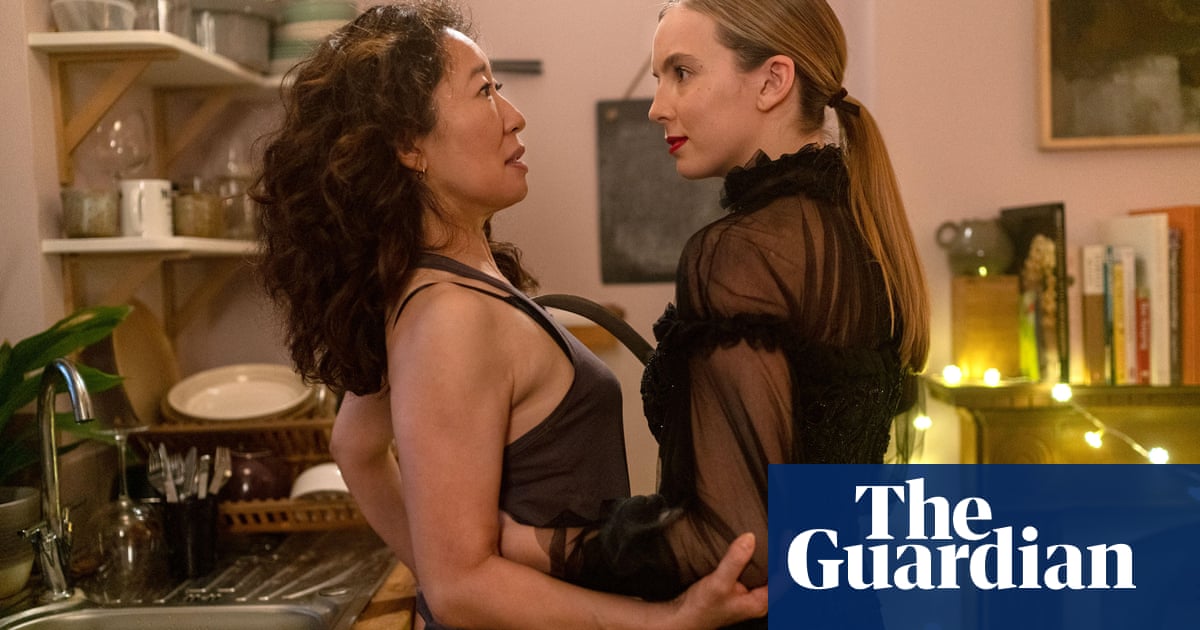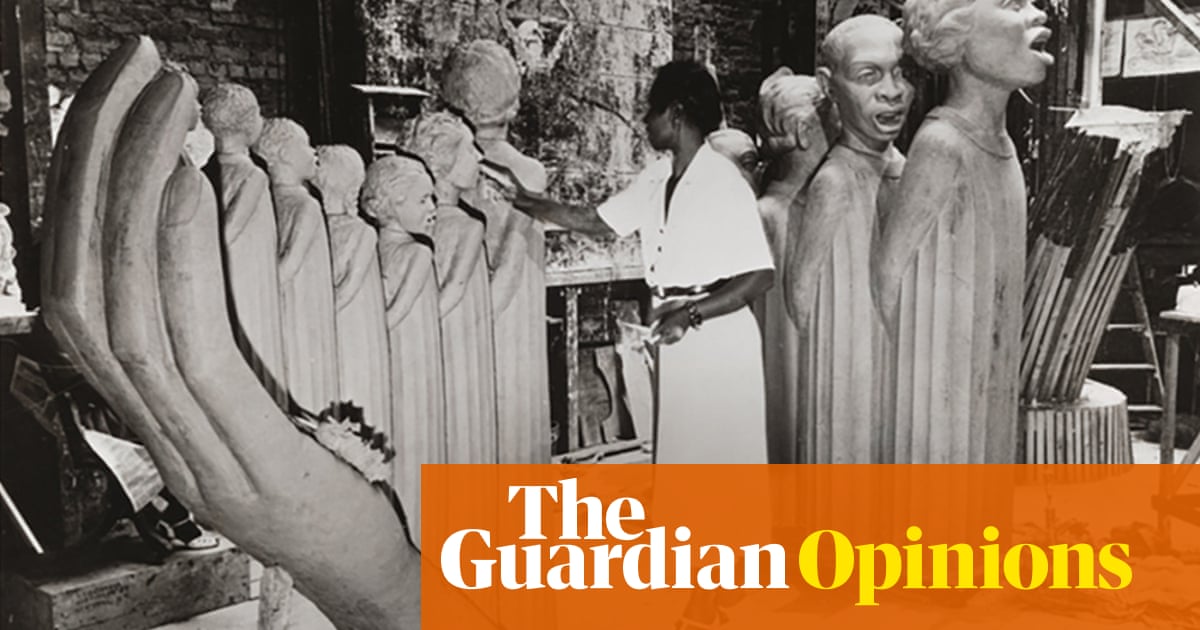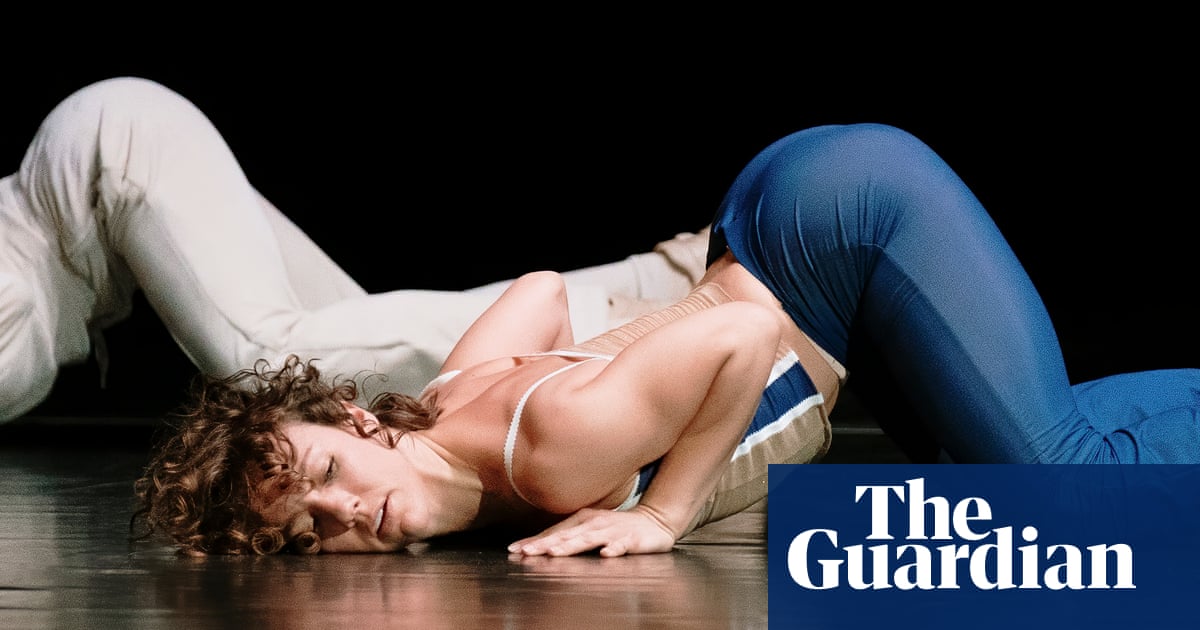
Luke Jennings
British author, dance critic and journalist, whose 2017 book Codename Villanelle was the basis for the BBC’s Killing Eve TV series
My latest novel, #Panic, was inspired by an online chatroom, and a group of TV superfans. Five years ago, I knew little or nothing of this niche world, and wouldn’t have dreamed of trying to write about it, but in April 2018, Killing Eve premiered on BBC America.
I had written the stories on which the show was based, and soon began to be contacted online by fans of the series. Most had questions about Eve and Villanelle: they wanted backstory details and inside information on characters who, in just a few weeks – a tribute to Phoebe Waller-Bridge’s inspired screenwriting, and the brilliant acting of Jodie Comer and Sandra Oh – had become very real for them.
As time passed, and the series unrolled, the fans kept in touch, and I learned something of their lives. They were young, for the most part – late teens, early 20s – and whether living in Russia, Brazil or the American midwest, had much in common. They were often very lonely, and felt that they were a long way from the centre of things.
Some were gay or gender nonconforming, and living difficult lives among people who didn’t understand them, or from whom they were concealing aspects of their identity. They loved Villanelle because she was powerful, and did what she liked without worrying about the opinions of others. They felt that she was in their corner.
One group of Killing Eve fans invited me to join their chatroom. I reminded them that I was older than their dads, but they didn’t mind, and I became a fusion of agony uncle, village witch doctor and fly on the wall. I witnessed their dramas, and learned the minutiae of their lives. Several were involved in online affairs, raising intriguing questions about the nature of love. What is it that you feel for someone whose words wrap themselves around your heart, but whose living gaze you’ve never met?
Online relationships are fragile, frequently imploding. People fade like ghosts. But this small tribe thrived. The chatroom hummed at all hours – breakfast time in Michigan is bedtime in the Australian outback – and there was never a shortage of news. Inevitably there were catfish, trolls and fantasists.
There was one character I’ll call Maria who, if she were to be believed, lived a helter-skelter life in Amsterdam, regularly picking up women for one-night stands à la Villanelle. Maria messaged me, asking if I thought she was a psychopath. She was incapable of empathy, she wrote, loved to control and manipulate people, and often had violent impulses.
At the time, the Killing Eve team were about to film in Amsterdam, and when Maria got wind of this, she announced that she was going to visit the set. I passed this information on to Emerald Fennell, then the series showrunner. Emerald was profoundly creeped out, and saw to it that security was tightened.
The fans had a second sense about who was real and who was fake, and ousted the likes of Maria the moment things got weird. The chatroom was vital to them; it provided the close, supportive community that eluded them in real life, and was the place they could be most truly themselves. I was a guest in that domain, but also part of the life of the TV series. My novelist’s antennae began to twitch. What would happen, I wondered, if the two worlds were to merge?
I began to imagine a scenario in which a group of TV fans becomes inextricably involved with the star of a hit TV show. She, and they, would be forced on the run together. And so was born Alice [the lead character in #Panic], an actor in the futuristic series City of Night, and four of her most dedicated fans.
With #Panic, I wanted to write about the true price of contemporary stardom – so alluring in long shot, so strange and dislocating in closeup. Alice is nothing like Jodie Comer or Sandra Oh. But, like them, she has to deal with the fact that the price of celebrity is that her audience think that they know her. They think that they have a claim on her. And sometimes – like Maria – they think that they are her.
It was a privilege to be part of the online group. To have a window on lives that were so very different from my own. “You’ve spent too much time with us!” said one member, when I sent them a copy of the finished novel.
#Panic is published by John Murray Press (£16.99). To support the Guardian and Observer, order your copy at guardianbookshop.com. Delivery charges may apply.
Marie Lu
Chinese-American author of science fiction novels for young adults
My Legend series for young adults was supposed to be a trilogy. By the time I came to finish the third novel, Champion, I had been envisioning its final chapters for a long time. Its ending, while left fairly open, seemed to me to be the right one for my characters.
Almost immediately after Champion’s publication in 2013, readers began asking if that was the real ending. I had anticipated this response to some extent, but the questions continued to appear in my inbox and on social media. At signings, readers would come up to me, incredulous. Was there really no more to tell about Day and June? Where does the republic go from here? It didn’t feel right, they would tell me. There just had to be more.
I grew up reading and writing fan fiction – I understood the feeling of loving a story so much that it becomes part of you. Over the years, as the emails and messages continued unabated, I began to realise that while my stories had once belonged solely to me, once they were published they became something that belongs to my readers too.
Because so many of my readers were asking questions about what happened after Champion, I started to ask myself those questions. At my writing desk, I would daydream about where the characters were now, how they would find their way back to each other. I began to feel the same restlessness that my readers felt. As I listened to my readers and gained life experience, my own version of the story began to change, and the original ending began to feel incomplete.
Six years after Champion, I wrote a fourth book, Rebel, a real conclusion to the story that I had once thought finished. I realised that I wasn’t ready to let it go yet, and that I needed to know that my characters were going to be all right. I don’t think I would have known that had it not been for my readers. There is something special, even sacred, about the link between the writer and the reader, and about how we learn from each other, collaborators in our own way on a shared story.
Stars and Smoke by Marie Lu is published by Penguin Random House Children’s (£14.99). To support the Guardian and Observer, order your copy at guardianbookshop.com. Delivery charges may apply.
SJ Watson
British novelist best known for his debut thriller Before I Go to Sleep
Most of the time, I enjoy the dialogue between writers and their fans that the internet has allowed. It can be gratifying to put my work out there and almost instantly see how it’s landed. I write to connect, after all, as well as to entertain. But there is a downside. When I sat down to write my second book, Second Life, I noticed I’d internalised some of my readers’ comments.
An online review that pointed out that I had overused a certain phrase in my debut was stuck in my head as I tried to write the necessarily messy first draft of the follow-up. Stephen King once said: “Write with the door closed, rewrite with the door open.” But with reviewers yelling (metaphorically) in my ear, it was becoming impossible to follow that advice. I was second-guessing myself at a stage when I ought to be just letting the words flow.
I made the decision to read no more reviews. I would continue to engage with readers and fans, but on my own terms. Shut the door, but keep the window open. But lately something has started to shift.
It began when I started my Substack. It struck me that it was the ideal platform not only for sharing long-form content directly, but also for encouraging a two-way dialogue between writers and their readers and subscribers. I began to share essays and short stories I’d written, first those that had been published elsewhere and then those written specifically for this new medium.
My subscriber numbers grew and as people became more engaged I realised that many of my readers were aspiring writers themselves. With that in mind, I began to talk more and more about the craft of writing, offering advice and support to those attempting their own fiction. I was convinced Substack could be a way to bridge the gap between writers and readers. I just wasn’t sure how.
Earlier this year, I hit upon a solution and started The Experiment, the most ridiculous thing I’ve ever done, professionally at least. In this project, I’m writing the first draft of a new novel in real time and uploading the raw, unedited draft, chapter by chapter, to my Substack newsletter. The opposite of King’s advice.
But The Experiment is not just a serialised novel. I decided to make it collaborative. I started without a plan, having first asked my readers for their ideas on themes, characters and story settings. And now it’s under way, each finished chapter is followed by an invitation for readers not only to give their feedback, but also to vote on the direction in which they’d like me to take the story. It’s equal parts exciting and terrifying.
So why am I doing it? To set an example to aspiring authors, partly (those paying a small monthly fee can also access behind-the-scenes posts in which I discuss the challenges I’m facing in detail). But I’ve found it’s not wholly altruistic. Creatively, it’s surprisingly liberating. Without expectations I can write what I like, but it’s more than that. Being a novelist can be a very lonely vocation, and so I’m finding the collaborative aspect incredibly invigorating too. I guess I decided it might be fun to keep that door open after all.












